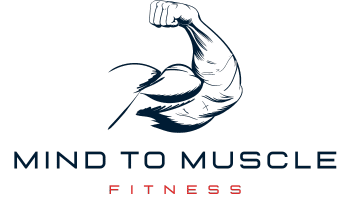
How Many Calories Should I Eat to Build Muscle?
Muscle building takes more than lifting weights; it takes a strategic approach to nutrition. A common question is, “How many calories should I eat to build muscle?” The answer is to eat more calories than your body burns every day. If you want to increase your muscle mass, this surplus provides the necessary energy for muscle repair and growth.
In this article, we will explore the importance of calorie intake in muscle building and how to determine the right amount for your goals. To help you grow muscle, we’ll provide a comprehensive guide that covers Basal Metabolic Rate (BMR) and Total Daily Energy Expenditure (TDEE). Let’s dive in.
What is Muscle Building?
Muscle building, or hypertrophy, is the process of increasing muscle mass through exercise and nutrition. It involves the enlargement of muscle fibers. Resistance training, such as weightlifting, is essential for stimulating muscle growth. The combination of consistent training and proper nutrition leads to effective muscle growth.
How Muscles Grow
It is observed that muscle fibers grow after being damaged by exercise. Resistance training causes tiny tears in muscle fibers. The body repairs these tears, making the muscles bigger and stronger. Protein synthesis plays a crucial role in this process. Adequate rest and nutrition are vital for muscle recovery and growth.
The Role of Calories in Muscle Growth

Calories are essential for all activities, including muscle building. For muscle growth and recovery, consuming the right amount of calories is crucial.
Caloric Surplus
A caloric surplus is essential for muscle growth. Consuming more calories than you burn provides energy for muscle repair. Without a surplus, muscle gain becomes challenging. It ensures your body has the necessary resources to build new muscle tissue.
Energy Balance
Energy balance is the relationship between calories consumed and burned. Maintaining calories is what you need to keep your weight. A surplus means eating more than your maintenance calories. This extra energy supports muscle growth and repair. Conversely, a deficit means consuming fewer calories, leading to weight loss.
How Many Calories Should I Eat to Build Muscle?
The average person needs 20 calories per pound (or 44 calories per kg) of body weight to gain muscle mass. To figure out how many calories you should eat to build muscle, calculate your basal metabolic rate (BMR).
BMR represents the number of calories your body needs at rest to maintain basic functions. You can calculate BMR using the Harris-Benedict equation, which considers your age, gender, weight, and height:
- For men: BMR=66.4730 + 13.7516 x weight in kg + 5.0033 x height in cm – 6.7550 x age in years.
- For women: BMR=655.0955 + 9.5634 x weight in kg + 1.8496 x height in cm – 4.6756 x age in years
Next, calculate your Total Daily Energy Expenditure (TDEE) by multiplying your BMR by an activity factor. This factor accounts for your physical activity level. It is necessary to consume more calories than your TDEE in order to gain muscle mass.
Try to consume a surplus of about 250 to 500 calories per day. It ensures muscle growth while minimizing fat gain. Keep an eye on your weight and adjust your caloric intake based on your progress. Consistency is key when maintaining a calorie surplus for muscle growth, so focus on nutrient-dense foods to meet your daily requirements. Incorporate lean proteins, healthy fats, and complex carbohydrates into your diet to fuel your workouts and recovery. Remember, tracking your meals and portion sizes can help you stay on target and achieve your fitness goals effectively.
Nutritional Considerations for Muscle Building

Nutrition plays a crucial role in building muscle effectively. Fuel your workouts with a well-balanced diet rich in macronutrients. Protein, carbohydrates, and healthy fats can boost muscle growth.
Macronutrient Ratios
When building muscle, it’s important to focus on macronutrient ratios. Macronutrients include carbohydrates, proteins, and fats. A common recommendation is to consume about 30% of your calories from protein, 50% from carbohydrates, and 20% from healthy fats.
Protein Intake
Protein is crucial for muscle repair and growth. Aim for about 1.6 to 2.2 grams of protein per kilogram of body weight, which ensures your body has the necessary building blocks for muscle synthesis.
Carbohydrates and Fats
Carbohydrates provide energy for workouts and daily activities. They help replenish glycogen stores, enhancing recovery. Healthy fats support hormone production and overall health. Focus on sources like avocados, nuts, seeds, and olive oil.
Hydration
Hydration is often overlooked but is vital for muscle function. Make sure you drink enough water throughout the day to stay hydrated. Dehydration can impair performance and recovery.
Timing Your Caloric Intake
Timing your caloric intake can significantly impact muscle growth and recovery. When you schedule meals and snacks properly, especially around workouts, your body gets the nutrients it needs.
Meal Frequency
Meal frequency can influence muscle growth. Eating multiple small meals throughout the day may help provide a constant supply of nutrients. However, the total caloric intake remains the most important factor. Aim for three to six meals a day, based on your preference and schedule.
Pre- and Post-Workout Nutrition
Pre-workout nutrition is vital for maximizing performance. Consuming a meal rich in carbohydrates and protein about 1-2 hours before your workout can enhance energy levels. Post-workout nutrition is equally important.
Make sure to consume a meal or snack containing protein and carbohydrates within 30-60 minutes after exercising. This timing helps replenish glycogen stores and supports muscle recovery.
Nutrient Timing Strategy
Incorporating a nutrient timing strategy can optimize muscle growth. Focus on getting adequate protein throughout the day, especially after workouts. This approach ensures your muscles have the necessary nutrients for repair and growth.
How to Monitor Your Weight Gain Progress

Monitoring your progress is essential for effective muscle building. You can adjust your diet and training based on your calorie intake and weight. You’ll stay on track to build muscle with this proactive approach.
Tracking Your Calories
Tracking your calorie intake is essential to building muscle effectively. Use apps or journals to log your daily food consumption. This practice helps ensure you’re consistently meeting your caloric and macronutrient goals.
Assessing Your Weight
Regularly assess your weight to monitor your progress. Weigh yourself weekly under similar conditions for accurate results.
A gradual weight gain of about 0.25 to 0.5 kg (0.5 to 1 lb) per week indicates that you’re on track.
Adjusting Your Intake
If you’re not gaining weight, it may be time to adjust your caloric intake. Increase your daily calories by 100 to 200 calories to stimulate growth.
Conversely, if you’re gaining weight too quickly, reduce your caloric intake to avoid excessive fat gain. Regular adjustments are key to achieving your muscle-building goals effectively.
Common Mistakes and How to Avoid Them
Many aspiring musclebuilders make common mistakes that hinder their progress. Avoiding these pitfalls will help you stay on track and achieve your goals. If you skip meals, underestimate caloric needs, and neglect macronutrient balance, you can build muscle faster.
Skipping Meals
One common mistake in muscle building is skipping meals. Missing meals can lead to insufficient calorie intake, hindering muscle growth. To avoid this, plan your meals and snacks to ensure you meet your caloric and nutritional goals.
Ignoring Caloric Needs
Many individuals underestimate their caloric needs, which can stall progress. It’s essential to calculate your BMR and TDEE accurately. Regularly reassess your needs, especially as your body weight and activity level change.
Neglecting Macronutrient Balance
Focusing solely on calories without considering macronutrient balance is another pitfall. Adequate protein, carbohydrates, and fats are crucial for muscle growth. Aim for a balanced diet that supports your training regimen.
Lack of Consistency
Inconsistency in training and nutrition can derail your muscle-building efforts. Establish a regular workout routine and stick to your meal plan. Consistency is key to achieving lasting results and building muscle effectively.
Read More: Empowering Female Muscle Growth Journey
The Takeaway
Building muscle requires a strategic approach to nutrition and calorie intake. You need to know how many calories you should eat to build muscle. Calculate your caloric needs, focus on macronutrient balance, and monitor your progress to grow muscle.
Stay consistent and informed to ensure your gym work pays off. With dedication and the right approach, you can build muscle effectively.


